
Metropolitan Mosquito Control District 2022 Year in Review
December 21, 2022
PRESS RELEASE: Mosquito Control activity has begun in your community
April 20, 2023This post was written by Field Operations Supervisor Kathy Beadle from the Oakdale facility of the Metropolitan Mosquito Control District.
What Do You Do in the Winter?
As a full-time Field Operations Supervisor at MMCD, when talking about my job with friends, family, or strangers, close to 100% of them ask “what do you do in the winter?” Well, I’d love to tell you! As you might guess, there aren’t many mosquitoes to fight from October to April here in Minnesota, but there is still plenty to get done during our "off-season."
Mapping
One of our main tasks during the off-season is to get our maps ready for the next summer. We use QGIS as our tool for adjusting our wetland site data and for making our maps look pretty for next season. We look back at site history to change our wetland priorities, and we look back at notes from the past season to make new sites or adjust current wetland shapes. If the conditions are right, we’ll go into the field to help us make site adjustments or map new things like trails, structures, catch basins, or sites. Before the next season, we’ll print off new maps if needed and print our section cards – these are used by our technicians to record what they do at each wetland in the summer.
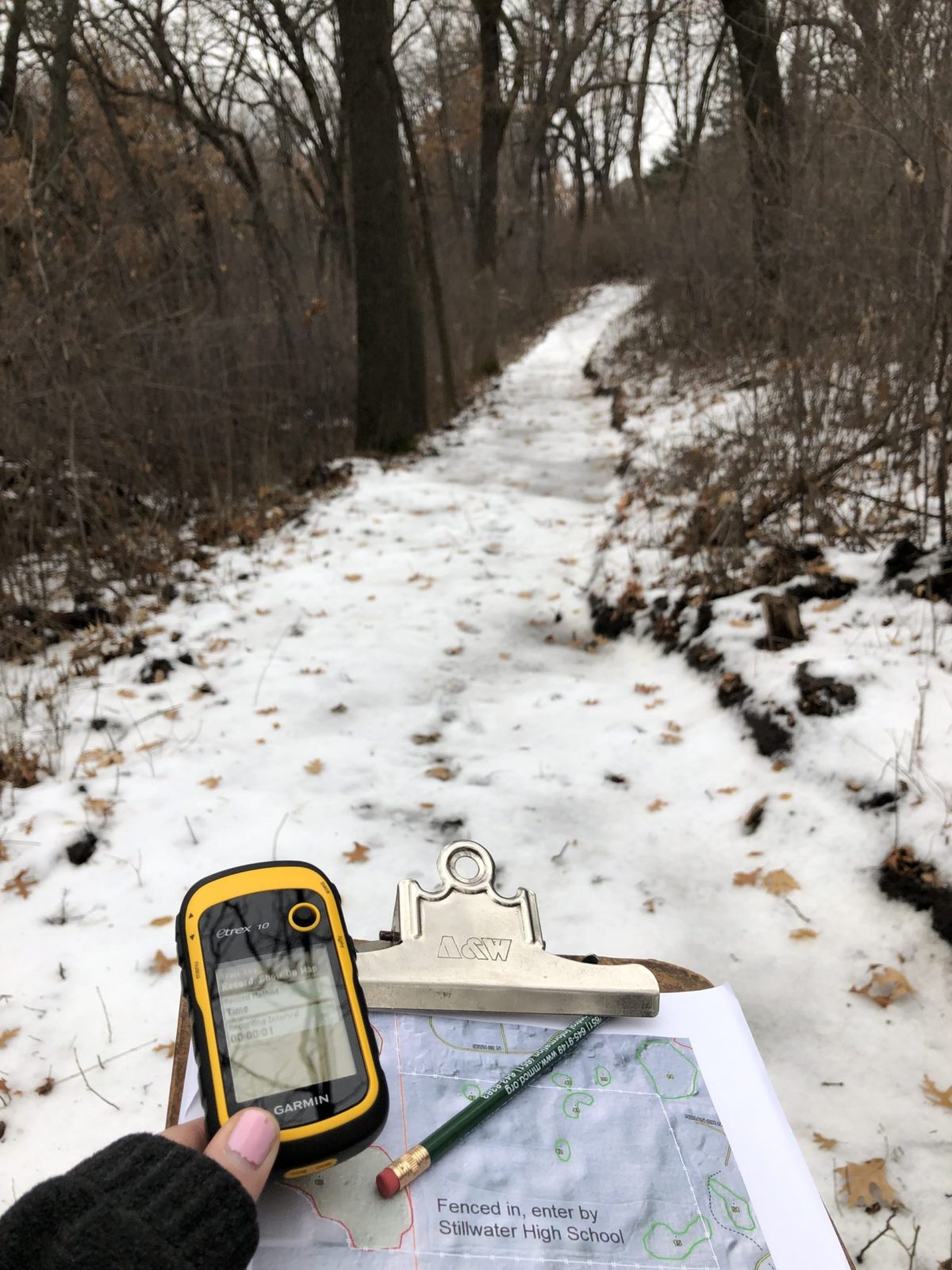
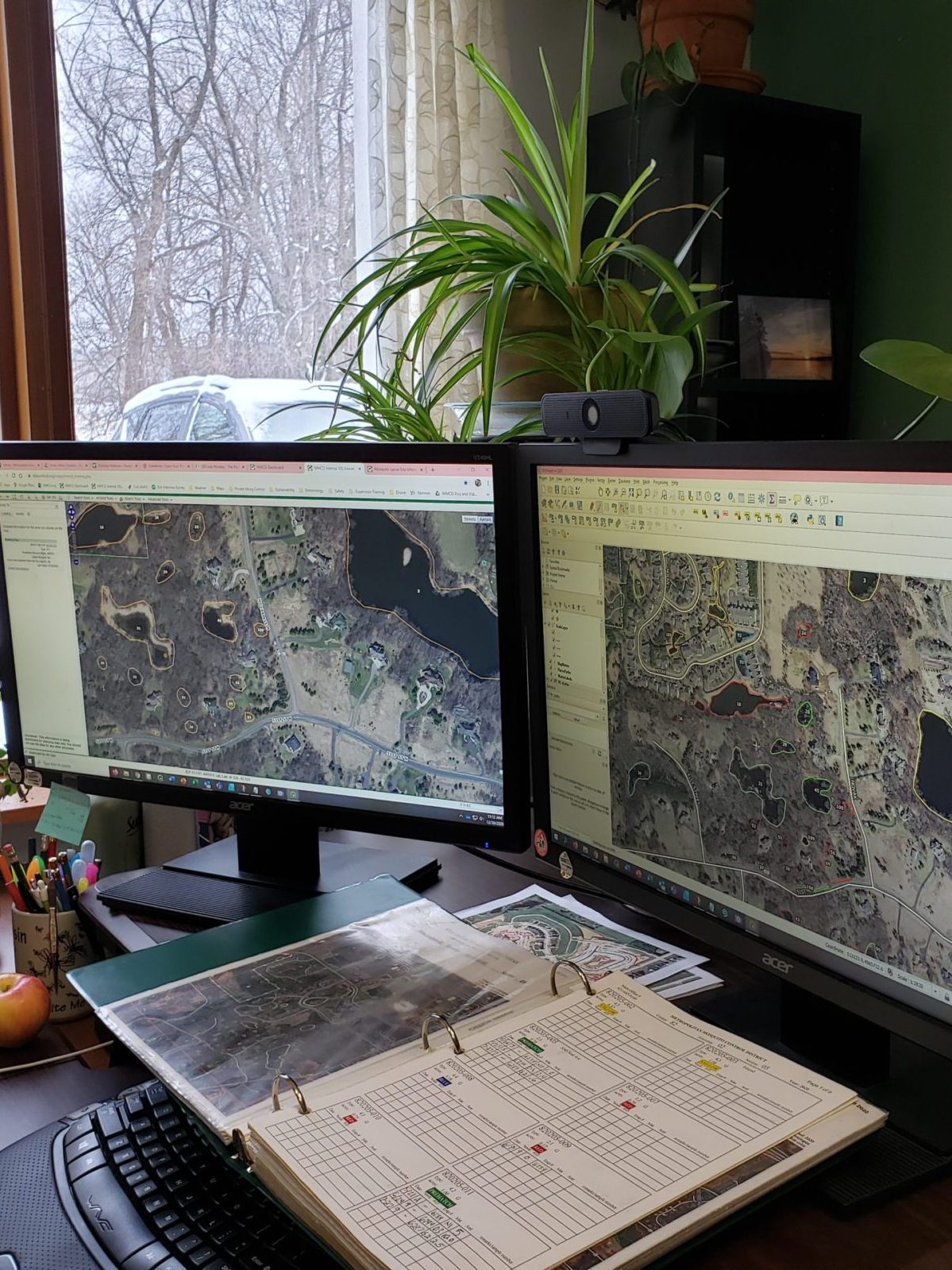
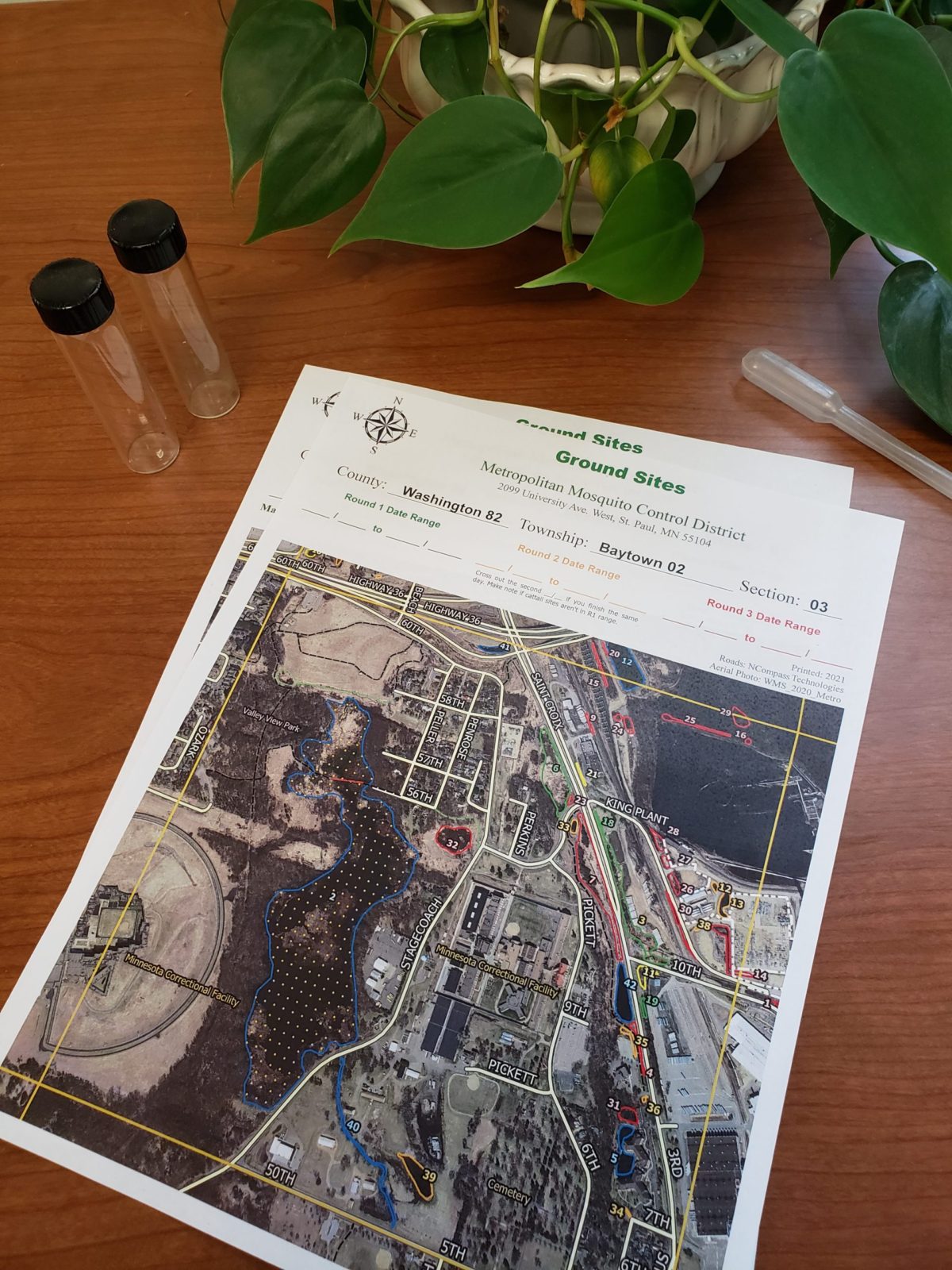
Workgroups and Teams
A lot of our time is spent working on projects that relate to the different teams and workgroups we’re on. Most full-time staff are on at least 3 teams that work to improve the district. Some examples of teams and workgroups are mosquito, black fly, tick, HR, communications, sustainability, drone, recruitment, and safety, among others.
During the off-season, we’ll have both in-person and virtual meetings to discuss improvements and come up with projects that help us reach our goals. For example, Drone Team is working on expanding our drone program to a few other facilities besides Plymouth. Computer Systems/Data Management Team is working on redesigning our data entry app. Human Resources Team is updating our seasonal orientation/kickoff presentations and coming up with full-time trainings. Communications Team is updating our website and will be signing us up for parades and fairs. The list goes on.
Recruitment and Hiring
Something that every facility works on is recruiting for new seasonal staff. We hire over 180 technicians every spring to do the bulk of our actual mosquito control in the summer, so finding staff is crucial. To recruit in the winter, we attend job fairs, we advertise online, and we put up flyers around town.
Once we get applicants, we conduct interviews with both new and returning staff. This is an ongoing process from February until our spots are filled. Sometimes we aren’t fully staffed until June, so reader, if you know anyone looking for a summer job, we’d love for you to send them our way
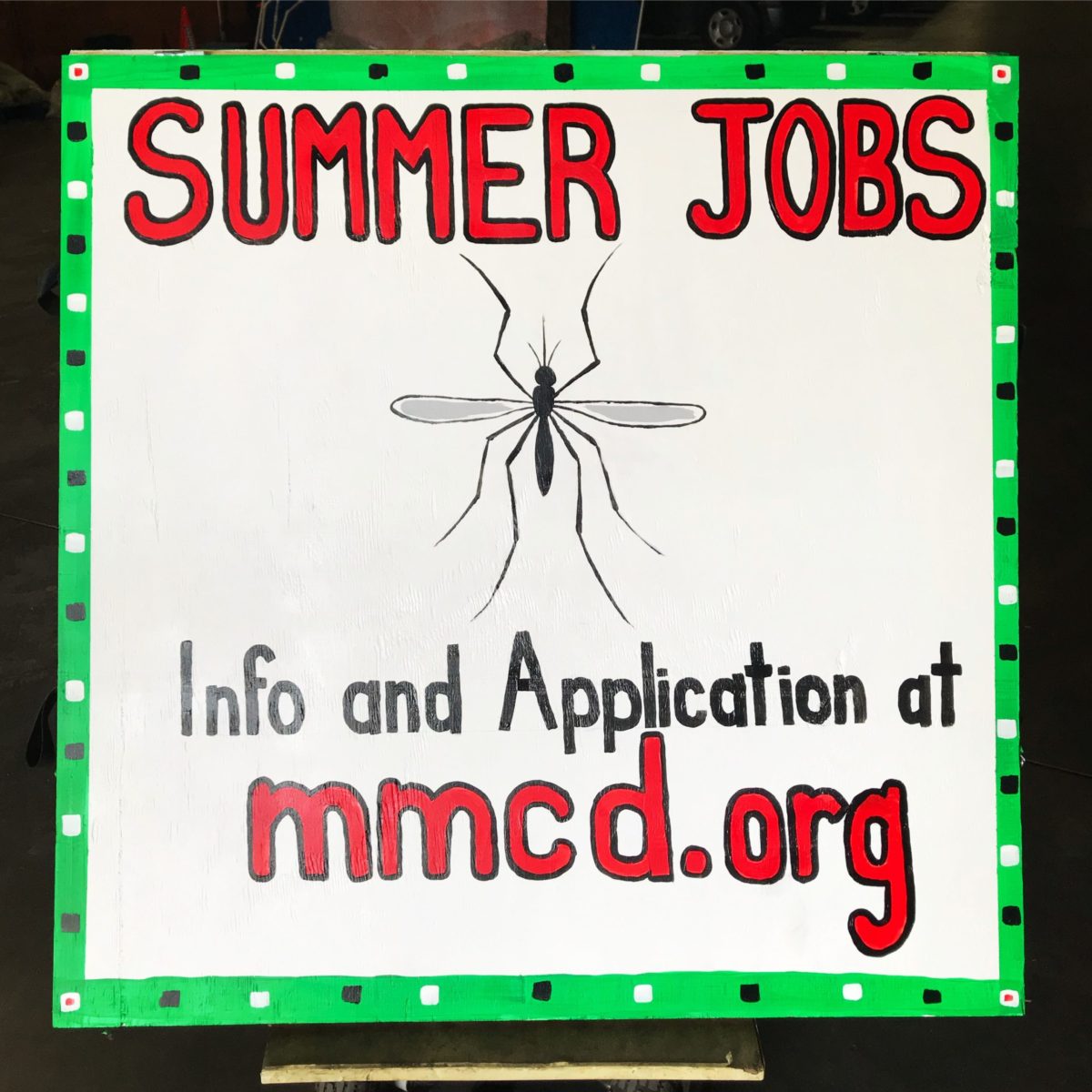
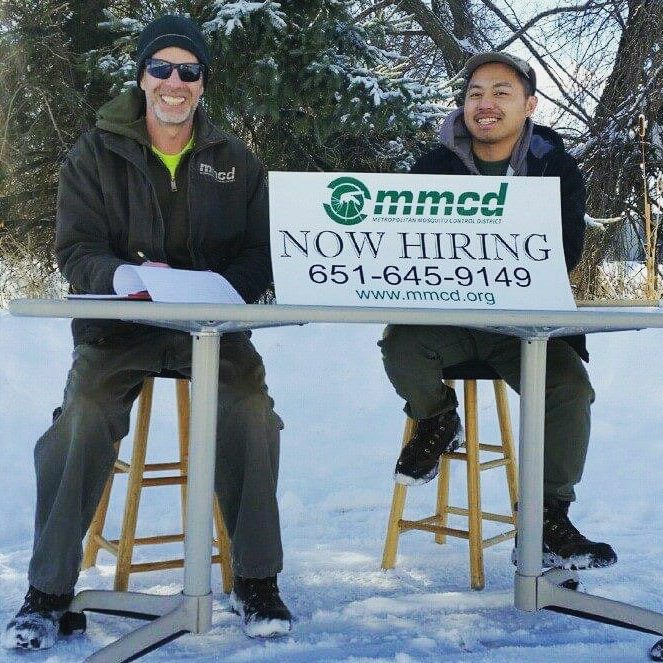
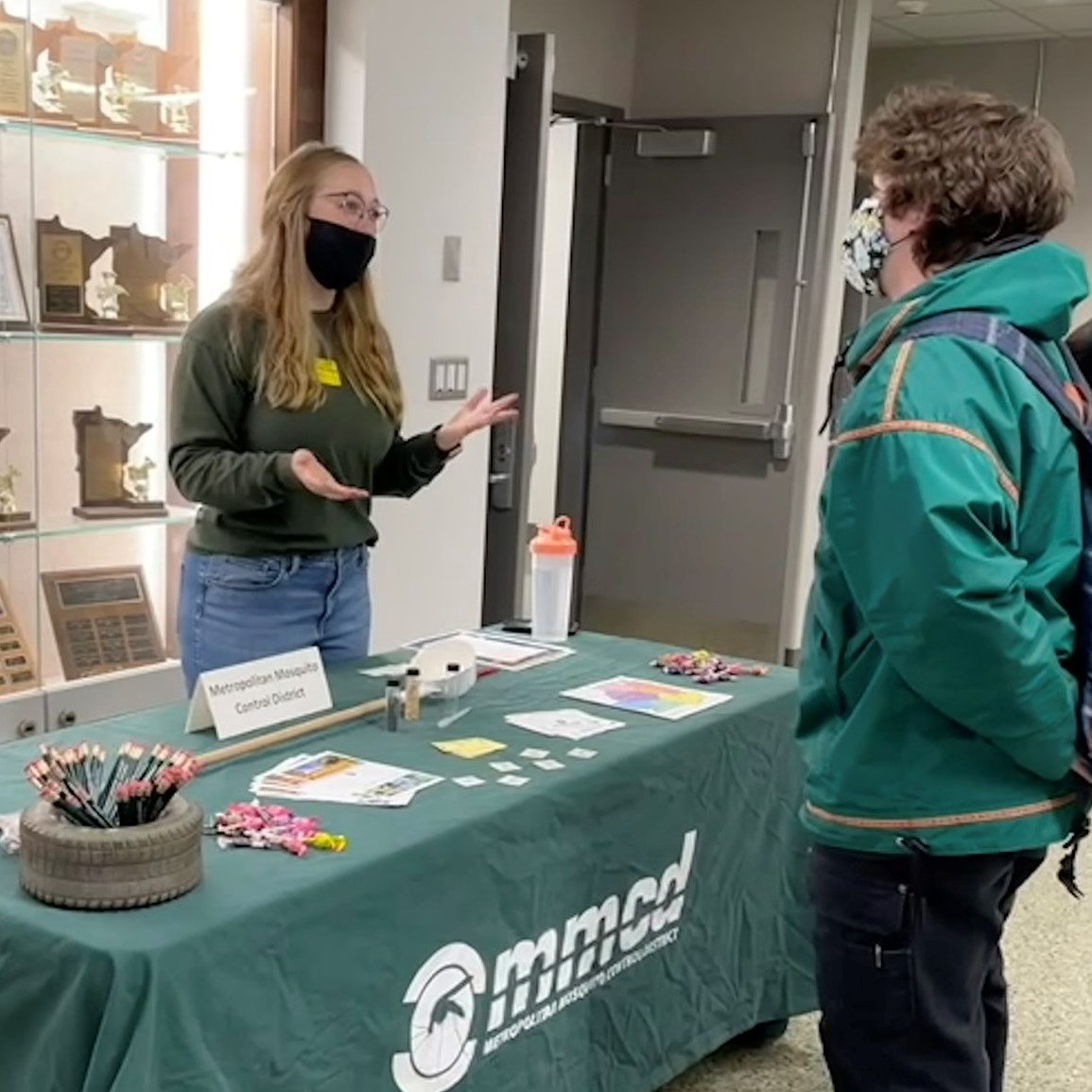
Training and Education
We are always wanting to grow both as an organization and as individuals, so we do a variety of trainings in the winter. We have a “year in review” that goes over how the season went. We’ll recap mosquito, black fly, and tick levels, recap disease outbreak levels, and we’ll review any other new things we tried out this year.” At our bi-annual North Central Mosquito Control Association meeting, we meet staff from other districts from around the Midwest and learn about mosquito control knowledge and advancements as a group.
We have group or individual trainings on topics like leadership, skills, new technology, and human resources. We also keep up to date on mosquito knowledge by reading articles, talking with coworkers, or watching videos. At our facilities, we keep each other in the loop with the different projects and teams we’re on so we are on the same page with district knowledge and so we can collaborate on shop decisions.
Shop Projects
Winter is a good time to take care of projects we might not have time for in the summer months. Things like changing light bulbs, truck maintenance, organizing our spaces, painting, or ordering supplies are all important things to be ready for the start of the season. Once we get close to spring, we’ll make sure our maps are printed, trucks are clean, supplies are stocked, and we’re ready for our first technicians to arrive.
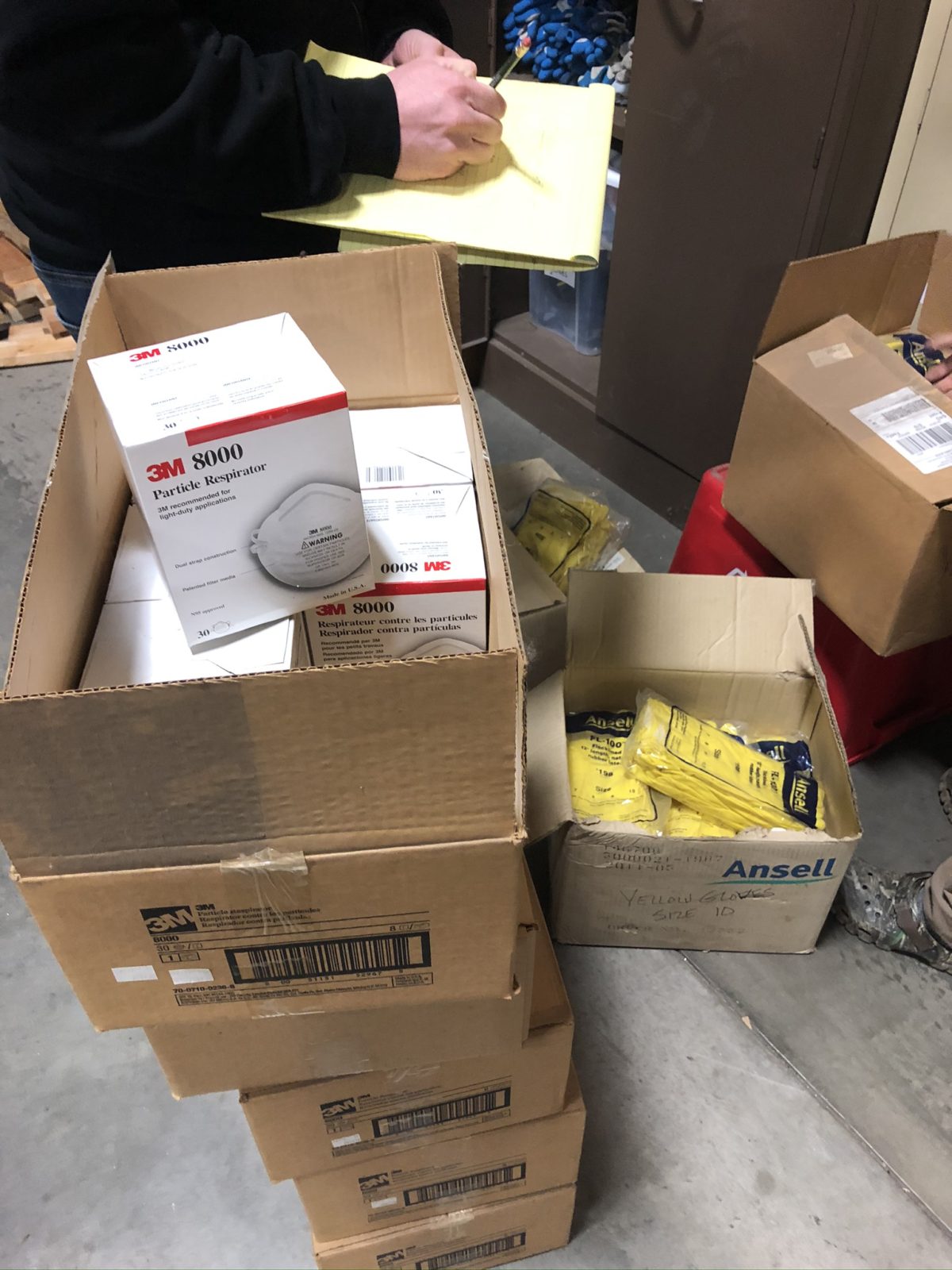
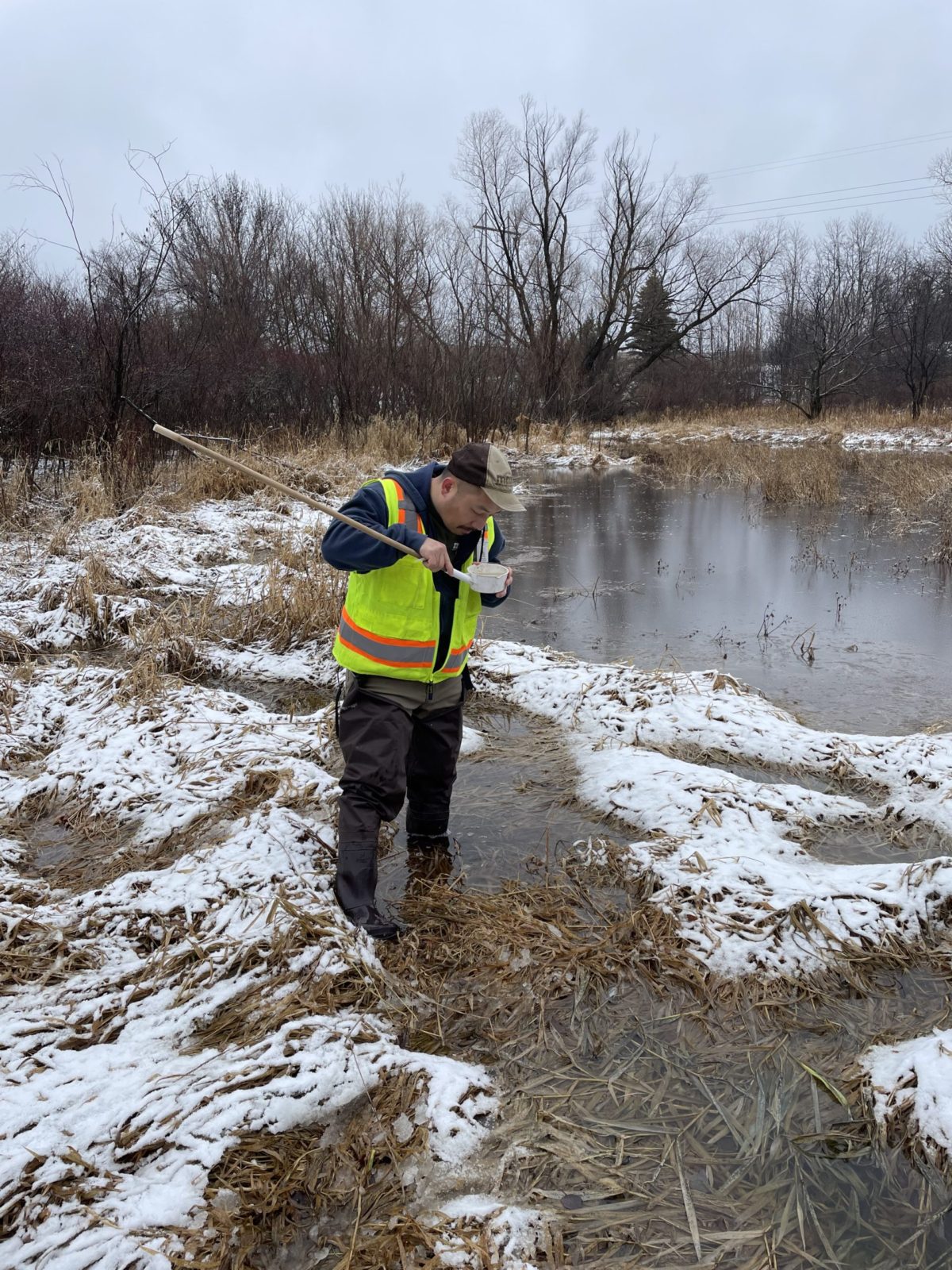
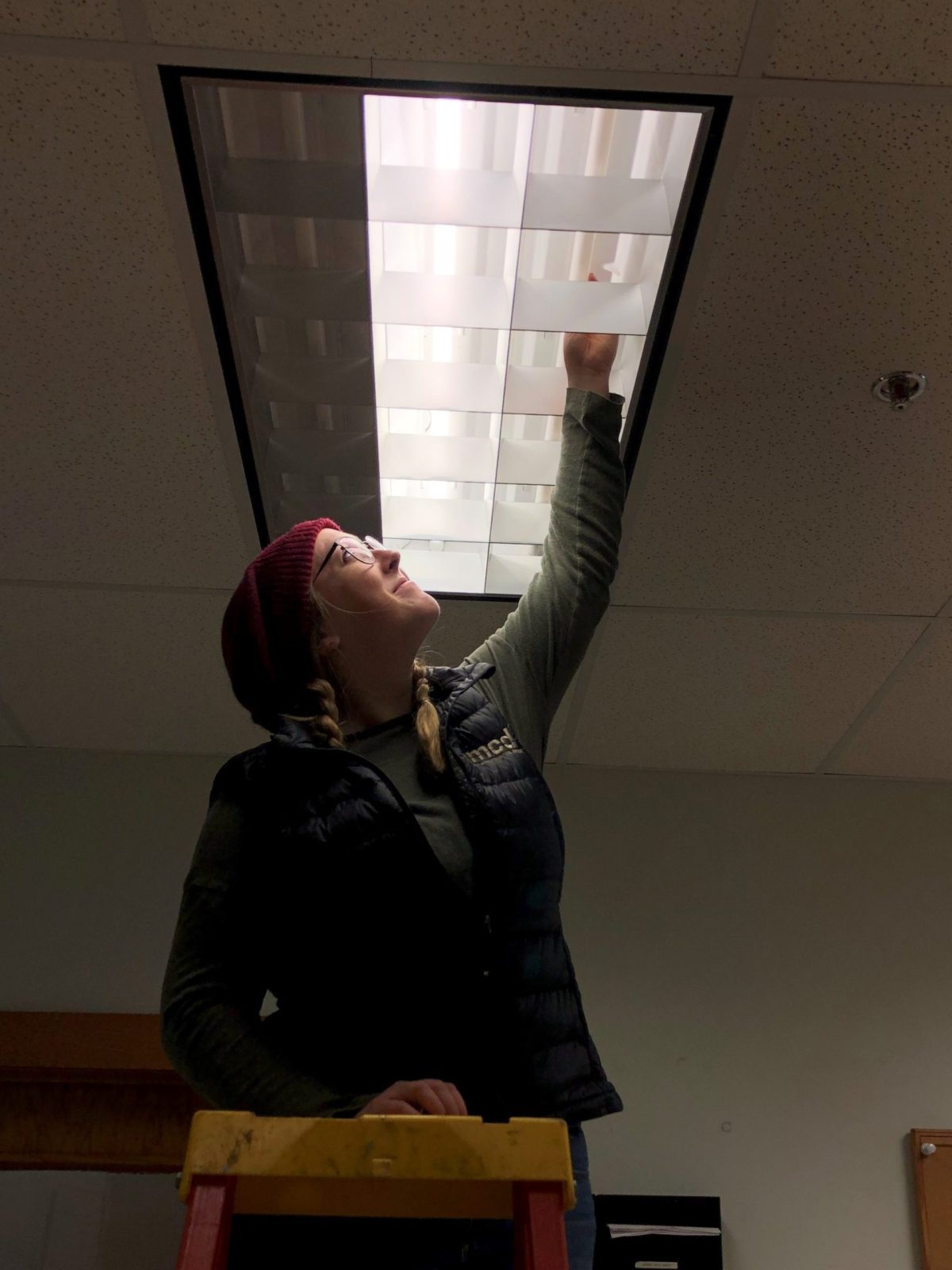
These are a just some examples of the many things we do during the off season. I love working here, even in the winter, because we have the flexibility to work on projects we enjoy when we want to work on them. If it’s a cold snowy day, you can work from home to do your QGIS mapping. If you’re feeling restless, you can work in the garage on your trucks. If you want to be with your coworkers, you can chat about anything from how to best design maps to the different ways to lead a crew. We all have different backgrounds, experience, strong-suits, and interests; we use our skills in different ways to get ready for the mosquito season and to help the district be the best it can be.





